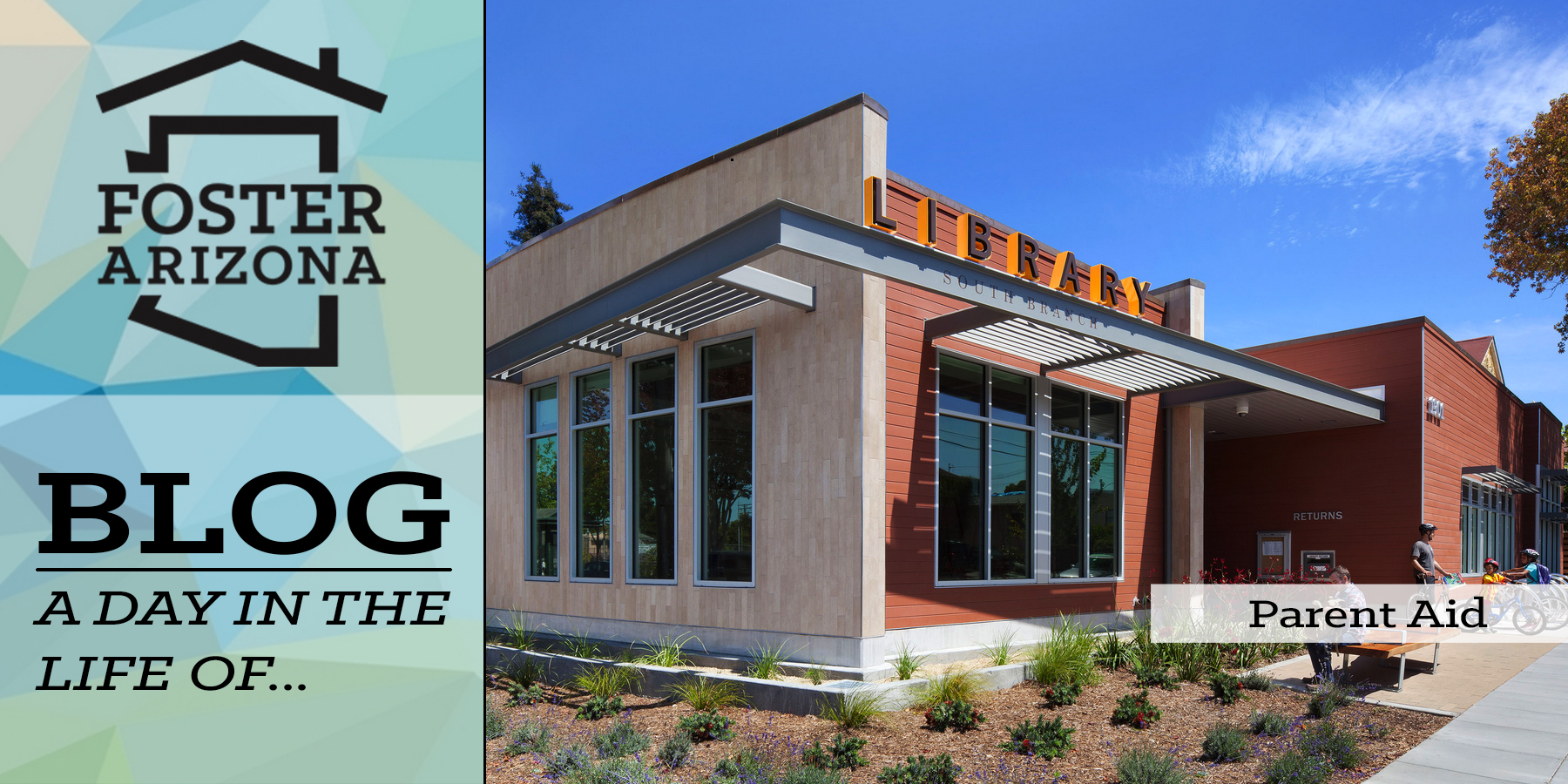For five months I picked up his girls in San Tan Valley, drove them to the Tempe public library, and supervised a four hour visit. I spent nearly every Saturday with them for five months documenting their visits. I observed his parenting skills. I observed their attachment. I made note of anything that might be considered progress or risk and I documented the times that they all happened. To say the least, his opinions of me were mixed.
They quickly established a predictable routine. When I arrived with the girls at 10:00AM, dad was always waiting, ready to unload his girls from my Jeep. He usually had a diaper bag with him, a cooler with their snacks for the visit, and a duffel bag of toys and blankets. His oldest was three and he called her his beautiful angel. His youngest had just started crawling.
10:15AM- They started the visit by playing in the childrenʼs area. He laid down a blanket for his younger daughter and then pulled out the toys that he brought for his older daughter.
I sat down near them, opened my laptop, and began to type. When I began working as a Parent Aide, I was trained not to get involved, but to observe and document. I watched them play. He wrestled with her and she laughed deeply. He played horsey and she hugged him tight. Then she ran away. She always did this. She ran away and he had to pick up his younger daughter and tell his older to come back to him. He yelled after her that he wasnʼt playing. But she thought it was a game. She ran and he ran after her, leaving a trail of blankets and items from the diaper bag. I wrote that down.
11:00AM- They ate lunch. I sat at the table next to them and documented the events. This was a tense time because his case manager had made clear he was not allowed to give his older daughter candy. That didnʼt seem fair to him; or me either. We had been working for the last five months on providing a balanced meal and I told him that giving her a few M&Mʼs with a healthy lunch was fine. He brought fruit, casserole he had made, and crackers, but he wasnʼt allowed to give her the candy. Apparently foster mom had reported to the case manager that the girls were coming home, “all hopped up on sugar.” That was the Saturday he gave her five M&Mʼs and a juice box. I know because I wrote it down.
11:45AM- After snack he took the girls to the bathroom to change diapers. I had to let him do it on his own while standing in the stall with him taking notes on my cell phone. He placed his older daughter on the changing station, but didnʼt buckle the safety strap. I wrote it down. He broke the diaper because he didnʼt know how to open the little velcro tabs. I wrote it down. His younger daughter started crying and he, “became visibly anxious as evidenced by dropping the baby wipes and saying sh–.” Now both girls were crying. Dad started crying. I stepped in to help and showed him how to wipe his daughter without making a big mess. “You can also use the tabs to fold up the diaper and throw it away.”
12:08PM- After diaper changes they played outside. His older girl ran around and he chased her. She loved it when he chased her. The younger drank her bottle or took a nap. One time he brought a little motorized car and taught her how to drive it. He seemed proud to be teaching her something that was so important to him.
1:43PM- About fifteen minutes before our visit ended, I started packing up. I didnʼt have to say anything. He knew what it meant. The girls knew, too. They started crying when it was time to say goodbye to their daddy. The older cried and held on to him so tight that I had to pry her out of his hands and buckle her into the car seat. He gave them kisses and told them he was working as hard as he could to get them back. Then he gave them fruit snacks for the 45-minute drive home. He cried every time the visit ended. I wrote that down, too.
We did this for five months and I wrote it all down, not only for the courts to determine the best permanent placement, but also so his girls, someday, would have a clearer picture of what this time with their dad looked like.
For many parents, these visits are the final interactions they have with their children; my notes are the final record of their relationship. I try to catch it all. I try to catch not only a parentʼs ability, but their heart. My favorite part of being a Parent Aide is to help families heal and reunite. But thatʼs not always possible. For those families that donʼt reunite, I preserve the relationship in case notes that these children might read as adults. I want them to read about the love their parents had for them, despite their ability. That, too, is my job.
Joe Mason
